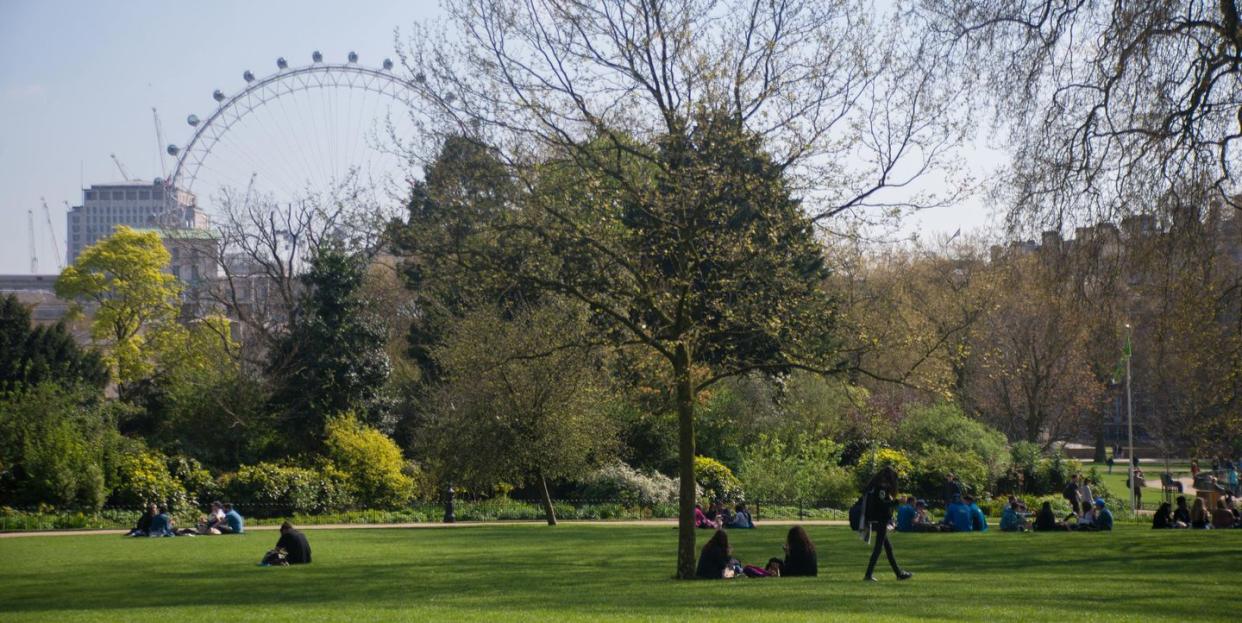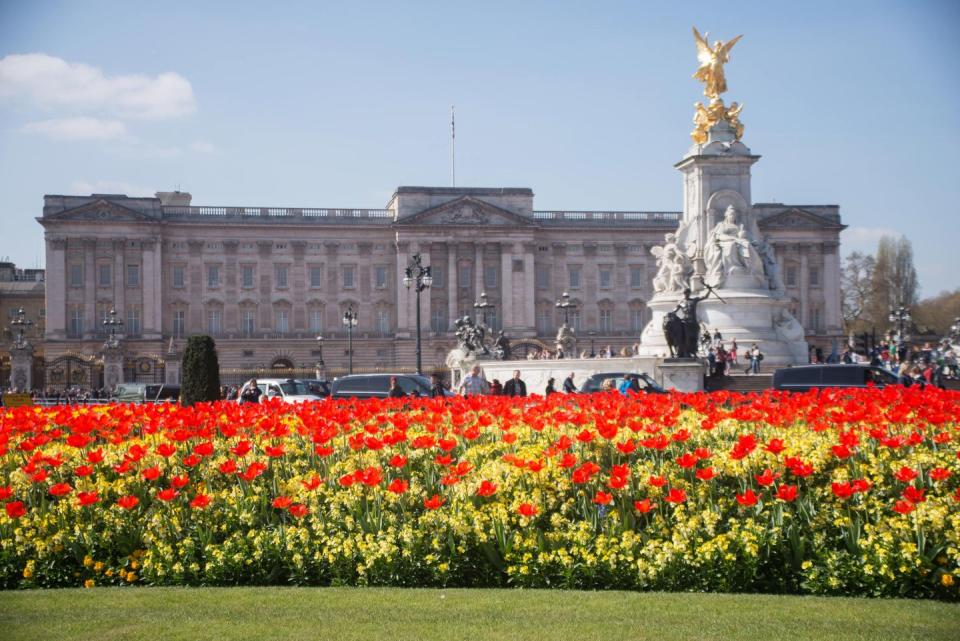Confessions of an urban forager

London’s parks and gardens are a godsend. At all times of the year, every year, but never more so than at present. And now that good sense has won out in the brief tussle over whether they should be closed over lockdown, we can roam once more with peace of mind, between the silver birch and the London plane.
So much love and care is lavished on our green spaces by their guardians; it is cheering to see the effort fully enjoyed and appreciated. When I fling open the window to clap this Thursday evening, I shall be thinking not just of the nurses and doctors but also of the gardener who tends to the rose beds in Battersea Park, and of the Westminster Council worker who comes down my road in the early hours watering the hanging baskets, as surreptitious as a milkman. I have spied him only once in several years, his elongated watering can manoeuvred dextrously out of the top of his electric float. It rather resembled the Popemobile. I shall think, too, of those who care for the black mulberry in St James’s Park, and the team now planting the scarlet geraniums in the beds outside Buckingham Palace, used to match the tunics of the Queen’s Guard.

No expense is spared on our green spaces. I have never seen purple tulips as beautiful and as abundant as those in Embankment Gardens last month. Yet taking my mum there yesterday on an unlimited walk, they were but a distant memory, dug up already in readiness for the summer planting. The same assiduity is evident all over the city.
We are living in bonkers times, but rough winds struggle to shake the darling buds of May. Our green spaces are resplendent. Many of us are spending more time in the parks than ever. Meanwhile, we are all preparing food with the gusto of Ainsley Harriott, Readying, Steadying and Cooking, only to take as long as we possibly can to bake our banana bread, such is the lack of anything else to do. And so, in this brave new world, where roaming aimlessly and cooking incessantly are the new normal, the popularity of urban foraging will surely continue its relentless rise.
Local, artisanal and wild are our current watchwords. Is there a box that a sprig of cow parsley picked in Finsbury Park doesn’t tick? Even the unlikeliest things can be gathered – whoever knew there was a benign side to Japanese knotweed? I have John Rensten’s fabulous book, diarising a year of wild food in our edible city, to thank for introducing me to ‘J.K. jelly’. The torment of homeowners is the delight of cooks.
But for me, the attraction of foraging is something deeper than its millennial credentials. It is the unparalleled joy of getting something for nothing. If you know the spots, and are led not by recipe books but by the ingredients in your wicker trug, then yes, there is such a thing as a free lunch. I remember vividly the kilos of mussels picked in minutes from the rocks on the Cornish beach in a summer past; together with thyme, bay and parsley plucked en route home, they made the most memorable moules marinière.
There is something more, too: the thrill of being a big-city forager. True, if you wake early on a Saturday, you will be able to wander undisturbed through Burgess Park, collecting white nettle for your risotto lunch; and it would be an unusually mean-spirited person who protested at your collecting of cherry blossom in Kensal Green for syrup. But, at other times, foraging in London must be a more clandestine occupation. For I want my bay leaves from the pair of topiary trees that adorn the entrance to the Ritz; my thyme from the newly laid raised beds around Battersea Power Station; my sage from the gardens of the US Embassy; and my rosemary from the ramparts encircling the Tower of London.
Am I a kleptomaniac? Perhaps. I have at times turned with a new sense of fellow feeling to Anthony Worrall Thompson, and wondered about a descent from green fingers to sticky fingers. The Tower is, of course, a Royal palace, so I am stealing not from just anyone, but from the Queen herself. (Or rather I would be, should I ever contemplate committing such a heinous crime after a Sunday-morning excursion to Borough Market.) One could be tossed headlong into a Tower dungeon, to share a cell with the poor soul who once strangled a swan.
Still, it would be worth it. For to enjoy a ‘Tower of London’ – my charred rosemary gimlet – with the fruits of one’s labour is a special thing. A swanky bar would charge the hipsters an arm and a leg for one: indeed, at the Savoy, the American Bar’s longest-surviving cocktail is the pea-green ‘Green Park’. And so I would drink away, and dine on roasted Power Station poussin or Ritz risotto…
All this brings me to the fig-tree to end all fig-trees. I came across it in St James’s last weekend, a stone’s throw from the Foreign Office and Downing Street, beside the lake on a wind-wandering, weed-winding bank. I read afterwards that it is the largest of its kind in Britain. Indeed, it was a thing to behold – colossal in scale, with long-lobed leaves and abundant fruit, flaunting its architectural foliage. An Indian horse-chestnut and paper-bark maple stood nearby, but it outshone them, primus inter pares.
And as for the fruit… The branches groaned under thousands of pear-shaped clusters. The goosebumps on my neck at the prospect of such a bounty were made only more pronounced by knowing a fig’s shop cost. This trip was just a recce. They were not yet ripe, but come August or September, they will make an unbeatable tart, a fine chutney, and find friends in prosciutto, honey or ricotta.
Would make. For while foraging is allowed across much of London’s greenery, it is banned in the Royal Parks. Incidents have mushroomed – there was, in 2018, apparently a 600 per cent increase in police warnings, compared with the previous year. I get it, I really do. The removal of sweet chestnuts from Richmond Park denies food to the roaming deer. I can satisfy myself with the rich pickings to be found elsewhere, but I cannot help but feel regret at the ripe abundance that will fall and rot; and mourn the desserts that will go unmade. And on my next evening walk, should I see a furtive figure emerge from Number 10 and walk to the fig-tree, all cloak-and-pocket knife, I shall forgive Boris for being no less a man than me.


